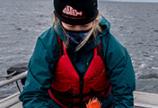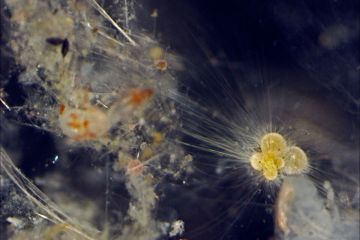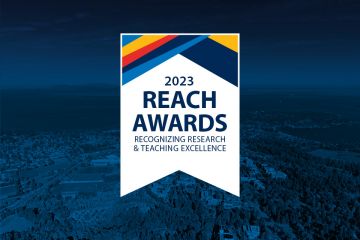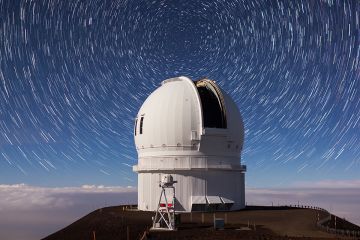Conserving rockfish with data and science literacy
- Nicole Crozier
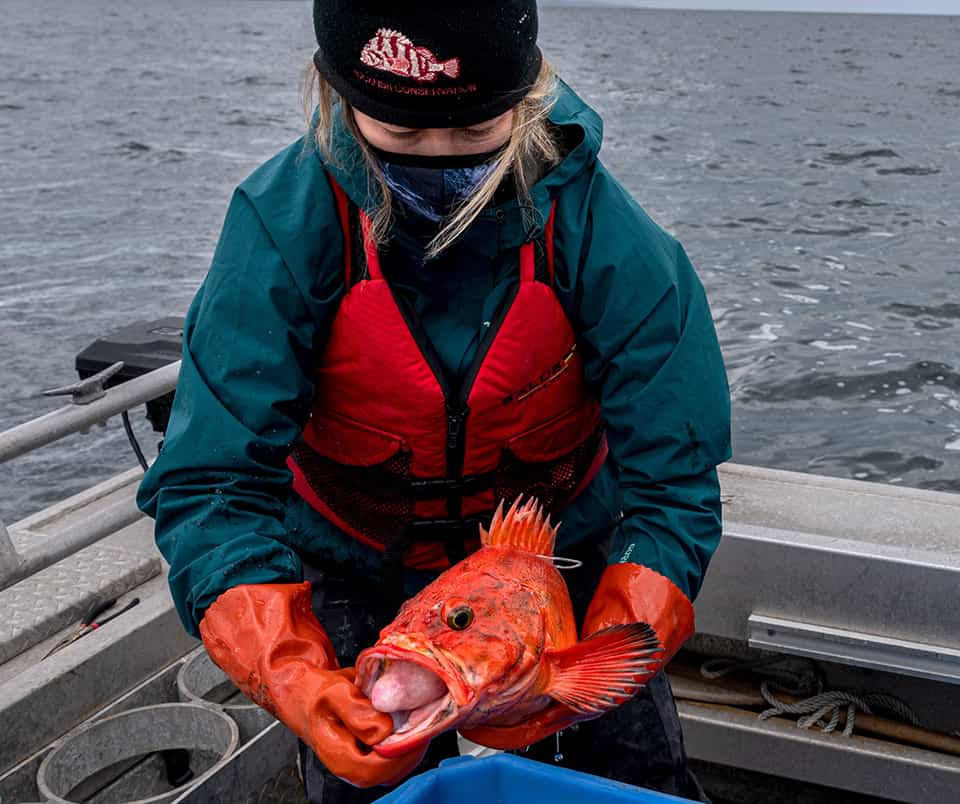
Vanier scholar, Hailey Davies on the deck of a research vessel holding a rockfish (photo supplied).
Hailey Davies has always had an appreciation and concern for nature and animals. After moving to Victoria for her undergraduate degree, she learned a lot about the problems facing marine ecosystems and discovered that fish welfare, noise pollution and the impacts of sound on animals were all understudied. In her PhD, supported by the Vanier Scholarship, she is actively working to change that.
The impacts that humans are having on the ocean are increasing, and many pollutants, such as chemicals and microplastics, have gotten a fair bit of attention. While noise pollution has started to get some attention when it comes to marine mammals, many people do not know that some fishes and aquatic invertebrates can also make sounds and are affected by increased noise. However, there is a lot of hope for reducing underwater noise pollution, as it does not stick around like most other pollutants.”
— Hailey Davies, Vanier scholar
Davies studies marine fish and invertebrate conservation using bioacoustics data and science literacy. She is currently working on two projects related to rockfish conversation, studying fish sounds inside Rockfish Conservation Areas, and examining the effectiveness of descending devices. Rockfishes are important on the BC coast and can be particularly vulnerable to fishing. Due to their specific type of swim bladder, rockfish suffer pressure-related injuries when brought to the surface, and these injuries can be fatal. Fisheries and Oceans Canada has mandated descending devices to release these fish more safely back into the ocean; Davies is testing the effectiveness of the devices at protecting rockfish.
Davies has also incorporated a science literacy component into her PhD and co-leads FishSounds Educate, a free educational outreach program. They offer interactive workshops on fish sounds, and their lessons also incorporate subject material such as fish biology, the physics of sounds and human impacts on ecosystems. Since launching in January, FishSounds Educate has participated in over 45 outreach events, reaching over 2000 participants. Davies plans to post the resources they have developed on the FishSounds website so they can be used by other educators, and to publish a paper about the project that describes how others could form similar outreach initiatives related to their own work.
One of the most important things we can do as scientists is share our work in a way that is accessible to everyone. In the current scientific climate, that is not usually prioritized.”
— Hailey Davies
Photos
In this story
Keywords: research, environment, pollution, water, science
People: Hailey Davies

